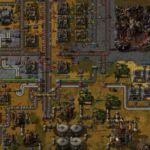Hey Ziglets
I have another Zigbit for you today! Today, we will be discussing the overall market shift from a manual to automatic world of networks. Let’s jump right in.
It’s been thrown out there numerous times a day over the last 6 – 12 months; automation is the next big thing. I’m a huge fan of automation, starting from my Computer Science Days with Artificial Intelligence. I’m a natural “lazy” guy, as I believe most of us in IT are, and would rather spend hours automating a task, or a subset of tasks, so that I can focus on something else the next time I needed to complete those tasks. But I jump ahead of myself a little. Let’s start with a few questions that we should be asking ourselves:
- What is automation and why is this change happening?
- What does this shift mean for me, The Network Engineer?
What is automation and why is this change happening?

Automation has been around for a long time. Let’s think of the Automation that has been implemented within a factory that manufactures automobiles. Business leaders saw an overwhelming monetary benefit by mainstreaming the automation of the assembly lines in a factor. I mean why not produce vehicles faster with less error to make more money?!?!

For those that would like a semi-realistic example, take a look at the Factory building video game called Factorio. You first start out in the game doing every task manually but quickly realize the potential automation has in this game. From manually mining resources to automating the building and launching of rockets into space.
Let’s use another example more relevant to the IT community. Automation is actually a huge foundation of programming. When you write a code snippet that is then determine to be needed again and again, we build a Method and / or a Function. Now instead of writing 100 lines of code, 30 times, we just call the Method/Function with the appropriate inputs. Its only logical and honestly a matter of time that this same process would be implemented within the other sub fields of IT. With the advent of automation, IT becomes a Business enabler, a Troop Multiplier, and reduces overall risk to the business. These are the business reasons why this change is happening so we need to embrace the shift from manual to automatic!
What does this shift from manual to automatic mean for me, The Network Engineer?
In a lot of ways we are going through an Evolution within our industry and automation is by far one of the biggest parts of this Evolution. Some are fully adopting this new way of completing tasks, deploying networks and services, while others that don’t like change are fighting it. I can relate to the instinctive urge to fight this change as some of us see this evolution as a threat to our livelihood. No longer will we be making CLI changes on the network devices to add new devices (switchport access vlan 200, switchport mode access), but relying on the orchestration of a “policy” engine to complete these tasks for us. For those of us that are also control freaks, we will have to learn to let it go so we can focus on other better things.
We need to set aside this urge to fight this change as Businesses are adopting these changes already. We as Network Engineers need understand what the Business benefits are for automation and then understand what it means for our roles as Network Engineers moving forward. No longer can we hide in our cubicles, in the data center, or in a dark closet with the light of our monitors aglow. We need to have a seat at the table with our Business leaders. We need to be discussing this evolution now so that we can help shape its adoption and its role in the future. The shift from manual to automatic isn’t going away!
In Summary

We as Network Engineers with automation we can complete defined tasks, rapidly, efficiently, and accurately. We can complete a larger number of tasks in a lot less time with a lot less effort and risk. These are all huge benefits for us and for the Business side of things. Building out 100 network pods now doesn’t take 3 months to complete but rather only a couple of weeks. There is a huge return on investment (ROI) from a business perspective here.
Will we have to learn some programming?…Sure! But, I’m not saying that we will be writing full production applications though. I do see us tweaking scripts and code snippets to make them work for our needs so understanding basic programming concepts would be a great benefit. I personally use my Computer Science background every time I’m discussing the needs of my application and developer teams. With that said, I couldn’t write a program to save my life but I can talk the talk when needed.

Love this! Hit’s home, even for non-techie like me. I do believe everyone should learn how to do things manually first, then take advantage of automation. Need to understand what’s happening behind the curtain and under the hood to fully take advantage of any automation. I will teach my kids how to drive a manual transmission car before an automatic – that’s the plan until I smell the burning clutch.
Studying for Network+ now. Don’t have plans to be a Network Engineer, just want to learn. Learning manual process has made me appreciate automation.
I want to tweet this to the world!!! Thanks Mike.
Thanks Howie and I’m glad you liked it. Hoping this and some of the future posts I do can provide some more context in our daily lives.